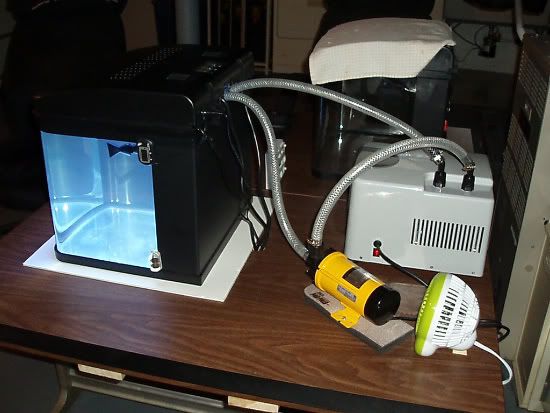i have run a sucessful 20 gal mixed reef for a few years with and without a heater or chiller. i have also survived and rebounded from both a cold related crash and a heater malfunction related crash.
imo your temp of 80* is as perfect as you can get.the higher you run it over that the more you have to watch it. if your temp is stable and does not fluxuate too much i would say you have nothing to worry about.
i also would sugest a fan if you can't get it down below 82-84 . there much more inexpensive than a chiller, but with the cooler weather comming i dont think you should need it.
for corals the more important issue is the stability of the water quality......what are your parameters?
if they are within sugested limits and stable you could start with any soft coral.....
(leathers, polyps, mushrooms, and kenya tree are what most people start with because they are more forgiving of water quality and light and usualy are a bit more hardy)
with only 65w p/c's i would stay away from most lps and sps corals because they tend to need more light(unless you put them high in the tank and with a 20 gal you wont see them that good at the top
imo your temp of 80* is as perfect as you can get.the higher you run it over that the more you have to watch it. if your temp is stable and does not fluxuate too much i would say you have nothing to worry about.
i also would sugest a fan if you can't get it down below 82-84 . there much more inexpensive than a chiller, but with the cooler weather comming i dont think you should need it.
for corals the more important issue is the stability of the water quality......what are your parameters?
if they are within sugested limits and stable you could start with any soft coral.....
(leathers, polyps, mushrooms, and kenya tree are what most people start with because they are more forgiving of water quality and light and usualy are a bit more hardy)
with only 65w p/c's i would stay away from most lps and sps corals because they tend to need more light(unless you put them high in the tank and with a 20 gal you wont see them that good at the top


